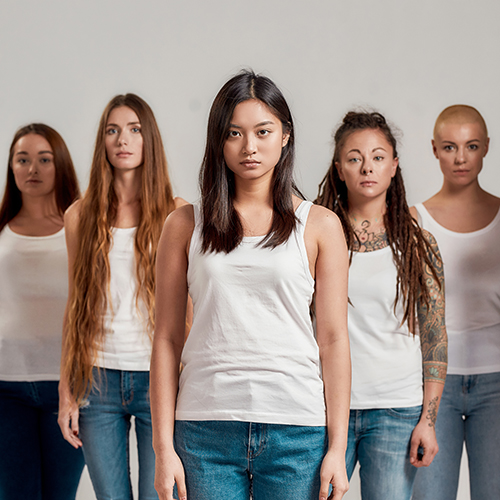18 August 2021
 Worry, anxiety and depression – when mental health problems strike, they hit hard, particularly in times of uncertainty. With young women consistently and disproportionately more affected by mental health problems compared to young men, experts say it highlights widespread gender inequalities, gendered violence, and discrimination.
Worry, anxiety and depression – when mental health problems strike, they hit hard, particularly in times of uncertainty. With young women consistently and disproportionately more affected by mental health problems compared to young men, experts say it highlights widespread gender inequalities, gendered violence, and discrimination.
Young women experience mental health problems at two to three times the rate of young men, with domestic and sexual abuse a key factor behind this difference.
Now, researchers from the Safe Relationships and Communities Research Group at the University of South Australia are working with young women affected by mental health challenges to better understand their experiences.
Funded by Breakthrough Mental Health Foundation, participants will co-design new peer-based online resources to help improve the mental health and wellbeing of young women affected by abuse and mental ill-health.
Lead researcher, UniSA’s Professor Nicole Moulding, says young women’s voices and experiences are at the heart of this study.
“International research shows that young women respond well to supports that are peer-driven, trauma-informed, and run by and for young women,” Prof Moulding says.
“What this means is that young women who have been affected by abuse and mental health problems are not only guiding what constitutes suitable support but are also helping deliver this support.
“In Australia, while we do have many wonderful organisations that offer support to victims of abuse and people experiencing mental health problems, most of these cater to mixed gender audiences and are not always trauma-informed* in their approach.
“Young women affected by mental health problems, including the many with experiences of gendered violence and abuse in their backgrounds, need trauma-informed gender-responsive support – and this is where our study comes in.
“We’re looking to design and create a range of trauma-informed, gender-responsive mental health resources, co-designed by young women who have taken part in our study.
“The end goal is to have a dedicated safe space for young women to connect with each other, lean on each other, share their experiences and bond together – essentially, it’s women helping women.”
Evidence shows that almost half of young women (aged 18-30) report psychological distress, one in five are diagnosed with anxiety and depression (about double the rate of young men) and 45 per cent report self-harming.
Co-researcher, UniSA’s Dr Michele Jarldorn, says the team is currently seeking young women aged 18-30 years to be involved in this unique and progressive initiative.
“Too many young women are struggling with mental health issues in Australia today, but unfortunately many cannot access support services, or they find that when they do, the advice provided and approach taken often does not take into account the context of their gendered life experiences,” Dr Jarldorn says.
“This project provides opportunities for young women to help and support others with similar experiences and to feel empowered by doing so.”
The study takes place over three stages: an anonymous online survey, an online focus group, and the development of an online mental health peer support website for young women.
To learn more, please visit: https://research.unisa.edu.au/redcap/surveys/?s=LLPJMAATXM
Right now, UniSA is launching a new Mental Health Research Fund to help tackle critical frontline issues like this. To find out more, visit: www.unisa.edu.au/mentalhealth
Notes to editors:
- Trauma-informed gender-responsive support recognises how trauma and gender impact on young women’s mental health and wellbeing. The approach avoids re-traumatising young women by asking “what happened to you?” rather than “what’s wrong with you?” Trauma-informed gender-responsive support builds “a sense of empowerment and control through women’s involvement and coproduction, and by creating a sense of physical, psychological and emotional safety” (Agenda: The alliance for women and girls at risk, Women Side by Side Report, 2020, p.7).
- $10.6 billion, or $420 per person, was spent on mental health-related services in Australia during 2018–19, a real increase from $396 per person in 2014–15.
- Family, domestic, and sexual violence is a major health and welfare issue. It occurs across all ages, socioeconomic and demographic groups but mainly affects women and children.
- Research shows that 95 per cent of all violence is inflicted by male perpetrators, with women overwhelmingly the victims of sexual violence and intimate partner violence and abuse.
…………………………………………………………………………………………………………………………
Media contact: Annabel Mansfield M: +61 417 717 504 E: Annabel.Mansfield@unisa.edu.au
Researchers: Professor Nicole Moulding E: Nicole.Moulding@unisa.edu.au
Dr Michele Jarldorn E: Michele.Jarldorn@unisa.edu.au




